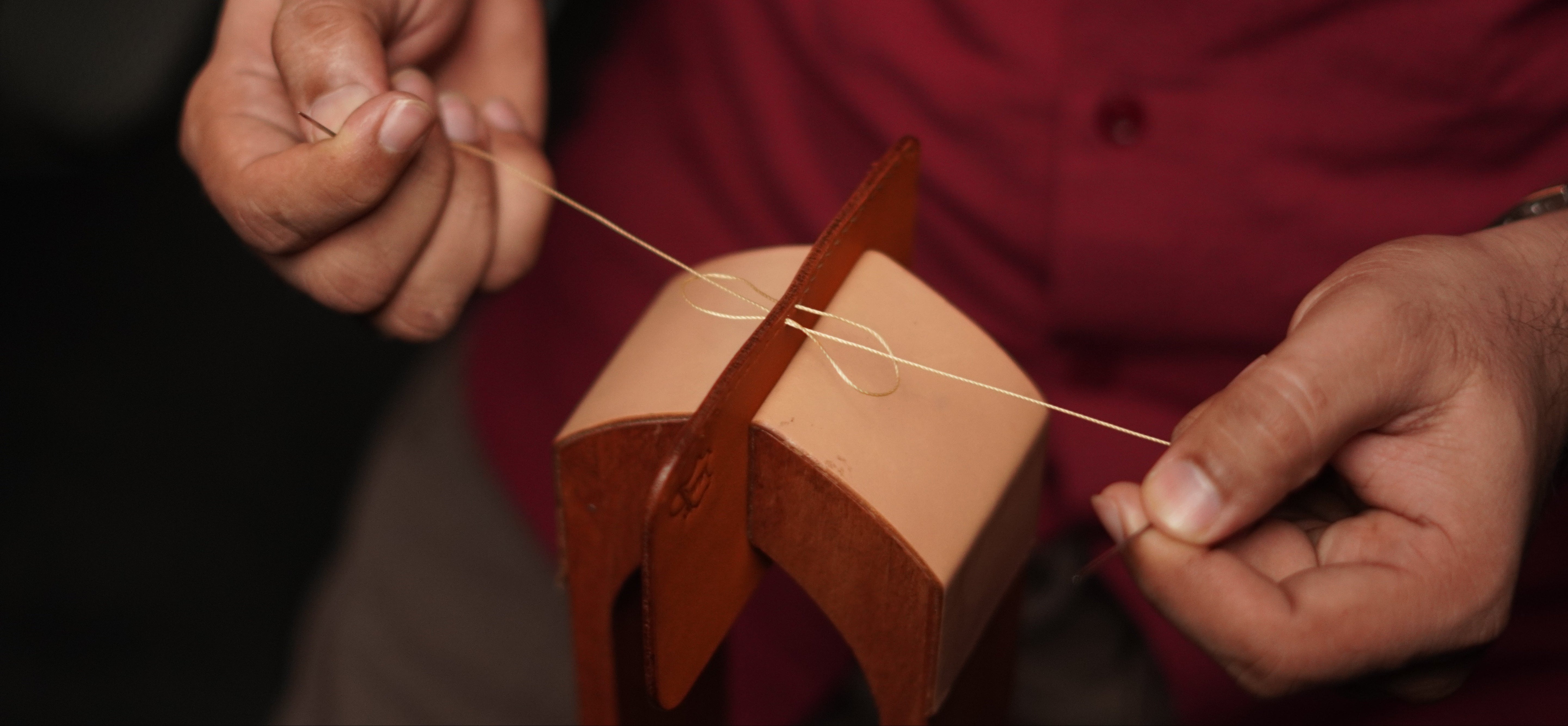Hand Stitching
Leather Hand Stitched – The Mark of True Craftsmanship
Every product at WF Leathercraft tells a story of dedication, patience, and precision. We don’t rely on machines for stitching — each piece is hand-stitched by skilled artisans, ensuring exceptional durability and a personal touch that no factory-made product can match. Hand stitching is more than just a method for us; it’s the soul of genuine leather craftsmanship that defines our identity.
Hand Stitching Basics – Traditional Methods That Last
Our hand stitching process follows the same traditional techniques that have been used by master leatherworkers for generations. Unlike machine stitching, which can loosen over time, hand stitching locks each thread securely into the leather, providing unmatched strength and consistency. Every needle pass is made with care to maintain alignment, symmetry, and tension — producing a clean, balanced stitch that enhances both look and longevity.
What is Saddle Stitching – Strength in Every Loop
Saddle stitching is one of the oldest and most reliable methods of leather stitching. It uses two needles and a single piece of waxed thread, crossing through the same hole from opposite sides. This technique ensures that even if one side of the thread breaks, the other side holds firm. That’s why all high-end handmade leather goods use the saddle stitch technique — it’s not just beautiful, it’s built to last a lifetime.
Two Types of Hand Stitching We Offer
At WF Leathercraft, we take pride in offering two distinct hand stitching styles, both using premium imported threads for the best finish and durability:
-
Diamond Style Stitching with Tiger Thread (Germany)
This technique uses Tiger Thread imported from Germany, known for its exceptional strength, rich color, and slightly glossy texture. The diamond-shaped pattern gives a bold, rugged appearance — perfect for wallets, belts, and everyday leather goods that demand extra durability and style. -
French Style Stitching with Bounded Nylon Thread (Japan)
The French style stitch is more refined and elegant, made using bounded nylon thread imported from Japan. It creates a subtle, smooth finish that complements fine leather craftsmanship. This style is often used in high-end products where elegance and precision come first.
Quality – The Signature of WF Leathercraft
Quality isn’t a claim; it’s a promise we stitch into every product. From selecting full-grain leather to the final polish, our commitment to perfection never wavers. Each hand-stitched piece passes through a meticulous quality-control process to ensure flawless finishing, strong seams, and timeless durability. Whether it’s a wallet, strap, or card holder — you’ll feel the difference every time you hold it.


